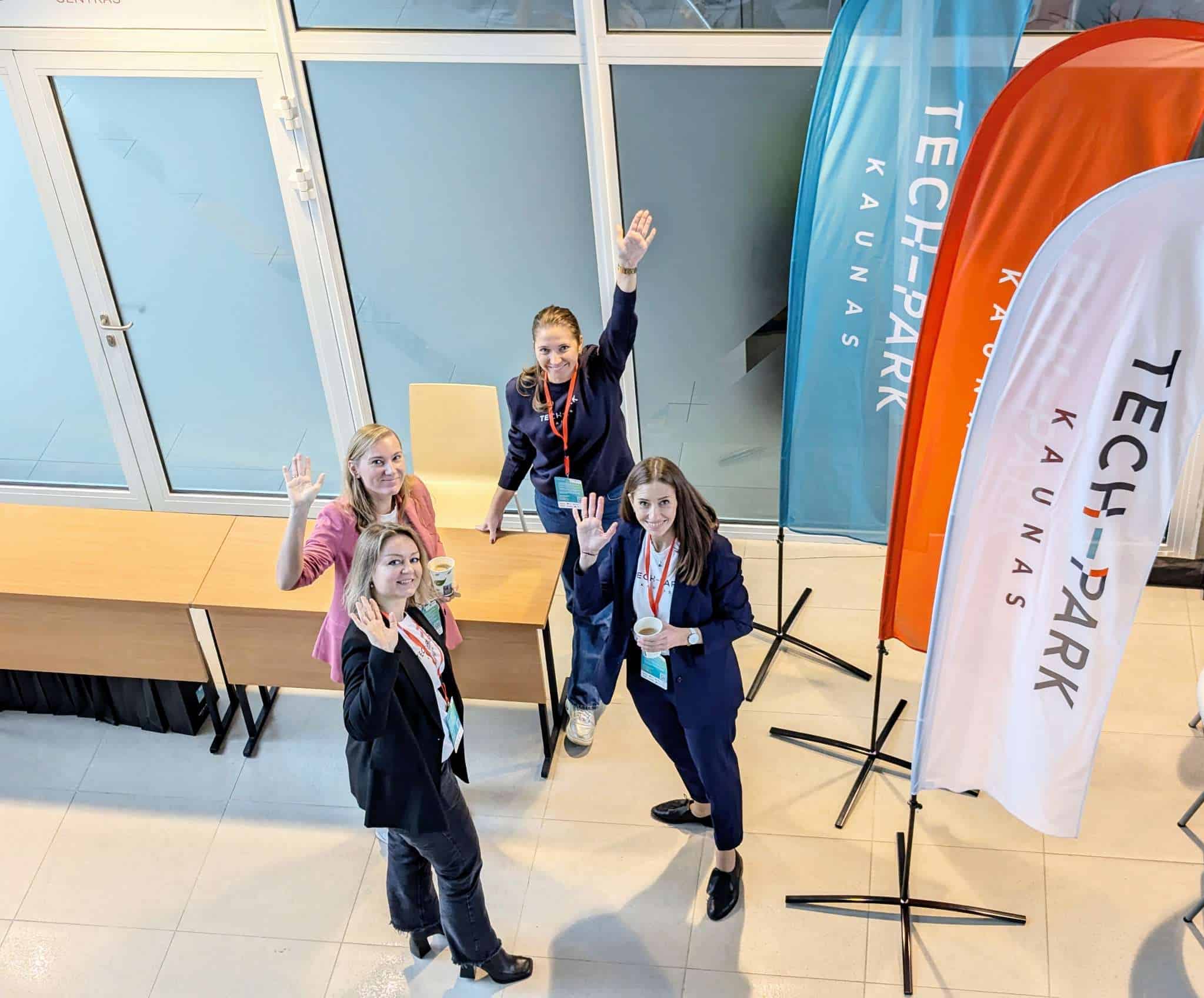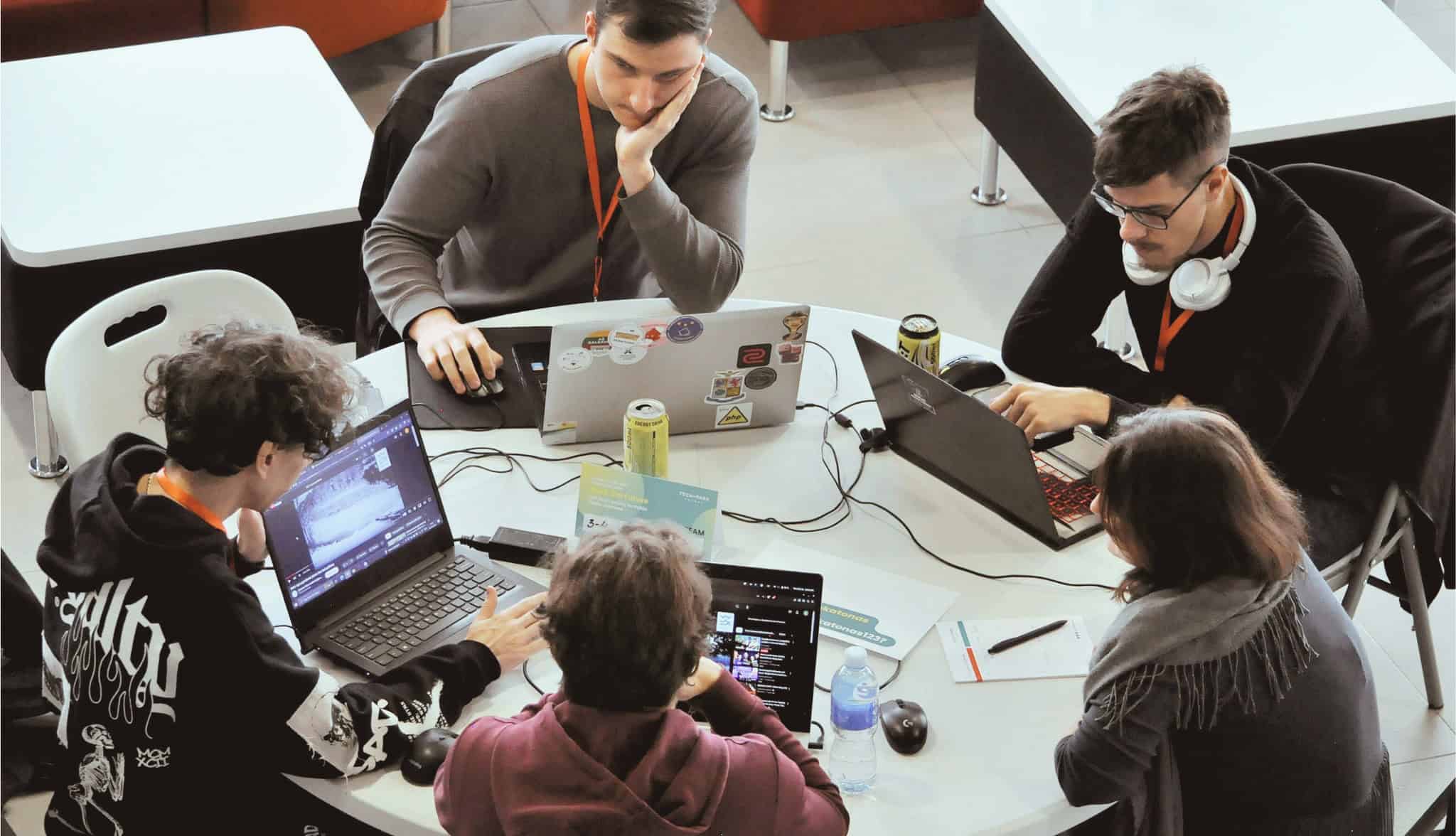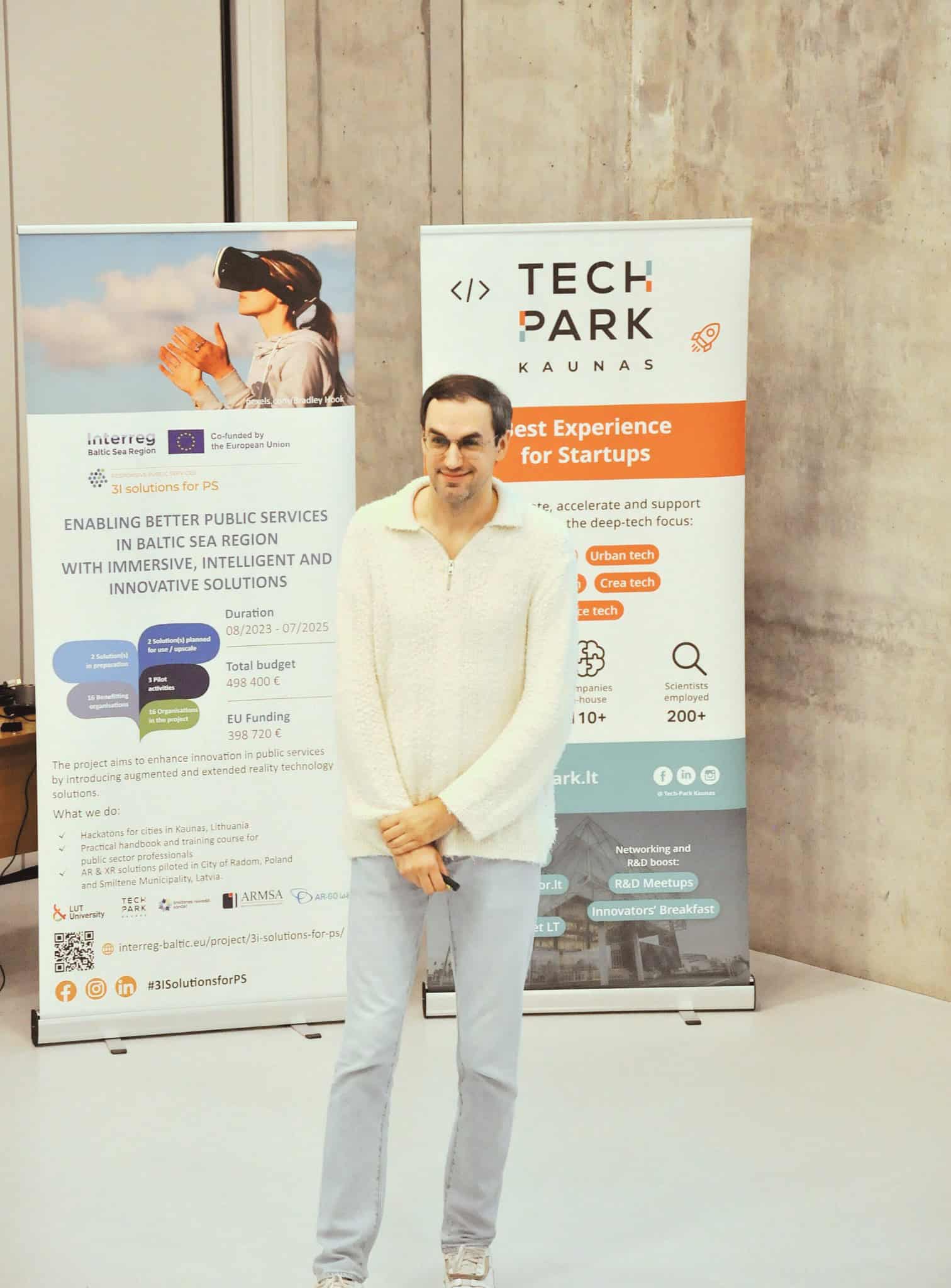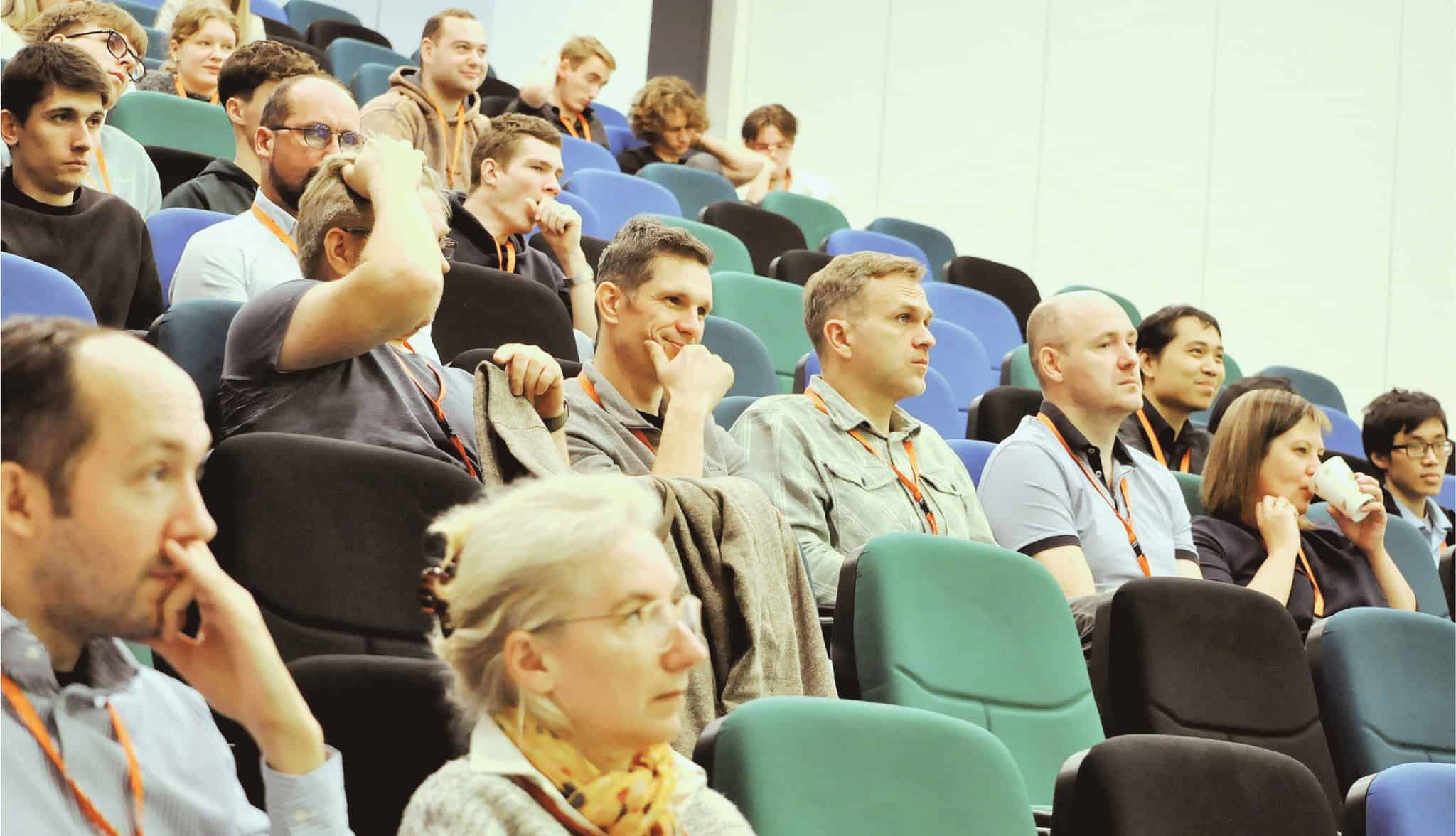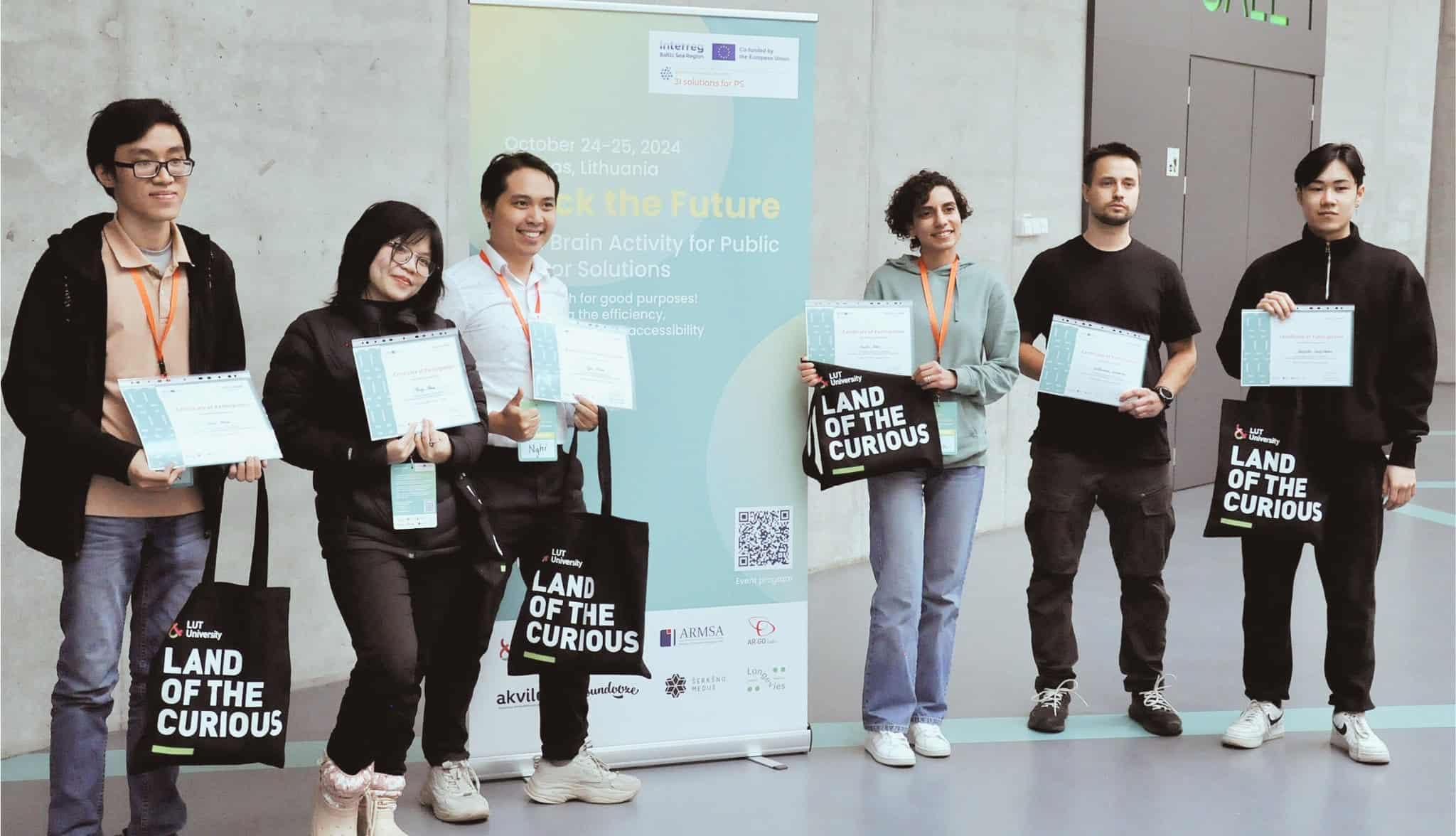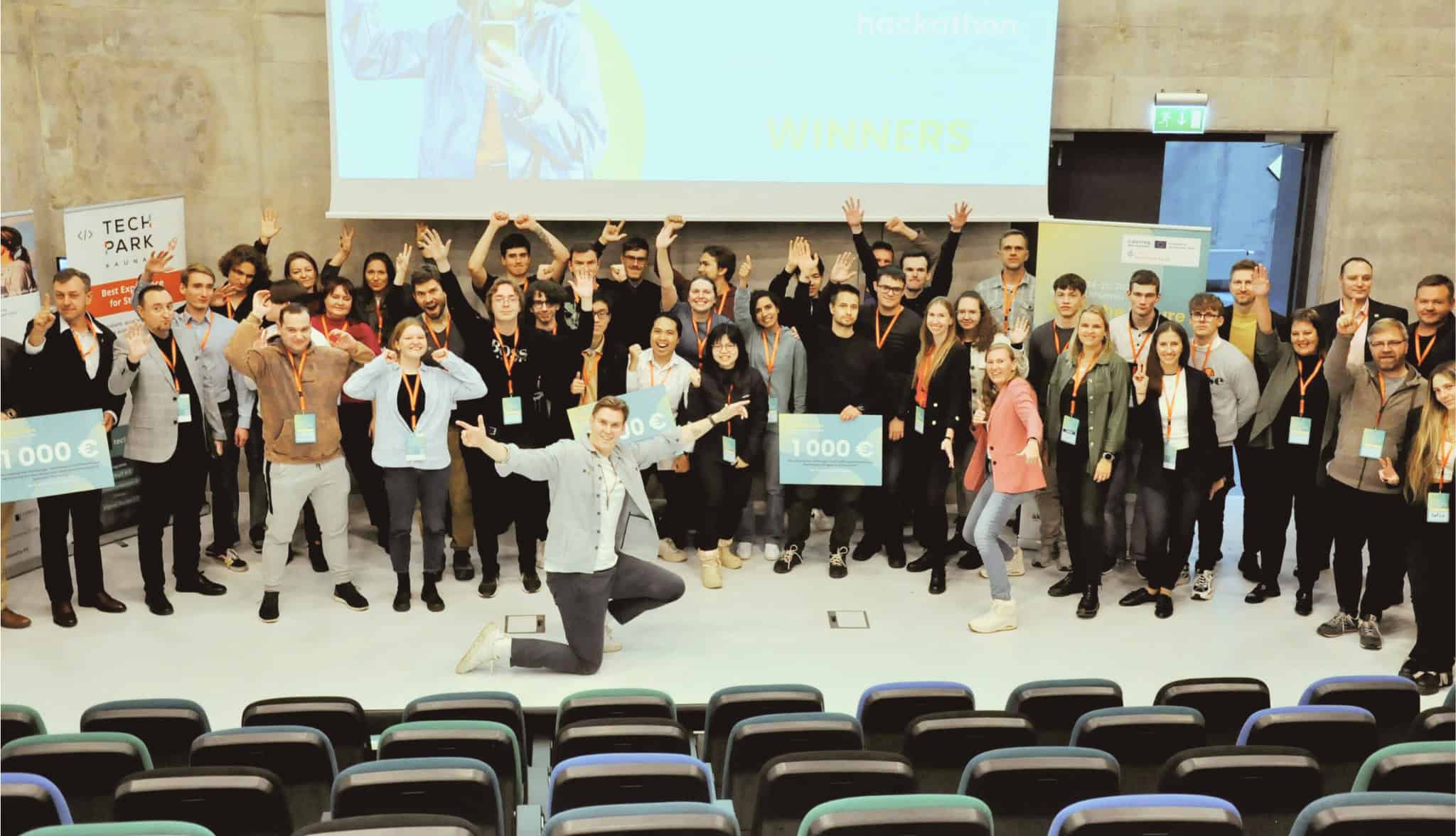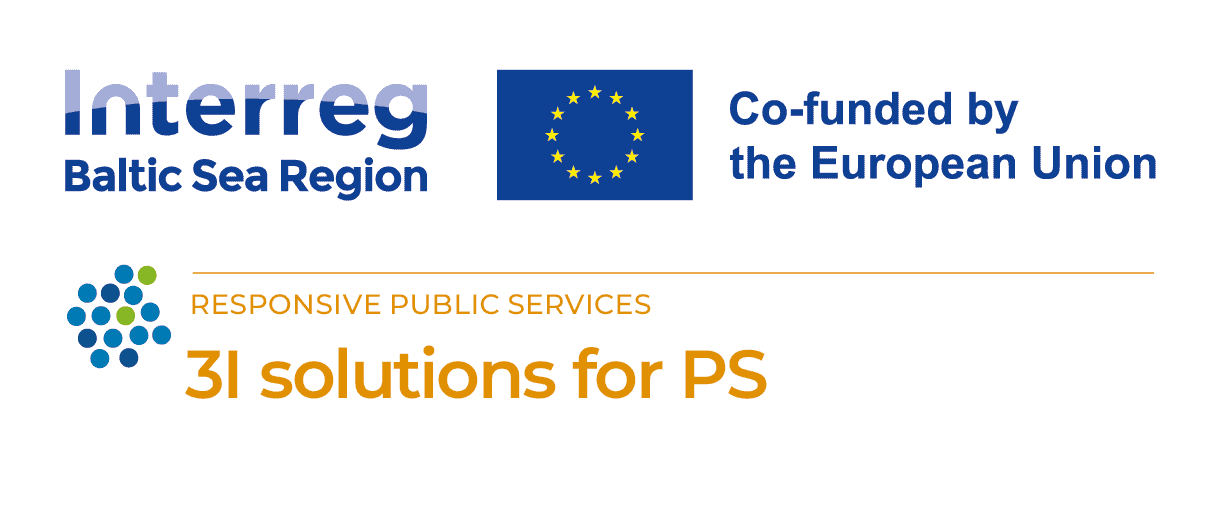
Hack the Future: 24h Brain Activity for Public Sector Solutions
12 November 2024
Public services, in general, but small cities and municipalities in particular, are primarily known to be very cautious when trying new approaches and technologies. Yes, we are always short of resources, but it’s equally true that what’s needed most is help, leadership, advice and… curiosity and enthusiasm. These features are most frequently and typically in excess in another public player — universities. The project “3I Solutions for PS“ presents the guidelines for bridging these two players by hackathons and pilot one in Kaunas 24-25 of October 2024.
The Hack the Future Hackathon by Interreg Baltic Sea Region and 3I Solutions for PS was held at one of the project partners’ premises — Tech-Park Kaunas, Lithuania. The event united technology enthusiasts from Lithuania, Finland, Latvia and Poland to tackle some of the biggest challenges in the public sector with innovative solutions. The united efforts of project partners, an excellent team of organisers, and facilitators from Tech-Park Kaunas created an environment of collaboration and creativity, leading to impressive results. The dedicated group worked tirelessly behind the scenes, ensuring every detail was in place to maximise the hackathon’s impact. The supporting team of partners was organising the event: Šerkšno medus, Roundooze, Mineral Water Akvilė, and Longevies. Organisations and supporters stimulated participants to push boundaries, explore new ideas, and develop innovative solutions. Technology development and teamwork require a lot of interaction, testing and openness to learning.
More than ten teams joined forces to find ways to improve public service delivery—reduce traffic congestion in the city, help consult more effectively on forest maintenance, organise city fairs, or monitor changes in hydrometeorological conditions in nature. We thank the KTU Faculty of Informatics, Kauno Kolegija, SMK Aukštoji mokykla, and LUT University communities for joining this adventure.
The key speaker, Tomas Ramanauskas, gave an inspirational session on Creativity. He is a creativity expert and cofounder of ANA, a news assistant. His background includes creating advertising, social movements, events, magazines, and businesses. The inspiration session on creativity with Tomas ignited the creative engines for 24 hours.
Artificial intelligence and environmentally friendly traffic management solutions were among the most popular ideas. The participants hoped that AI bots could be a great tool for public sector services, responding to inquiries and providing information efficiently. More than a dozen representatives of the private and public sectors and entrepreneurs who joined the mentor club helped the decision-makers.
An interesting fact is that business mentors were more popular than ChatGPT. Mentors not only provided practical knowledge but also motivated us to stay away from cliches. They challenged participants to find a genuinely empathetic connection between public service providers and end-users. Superheroes in the entrepreneurship world — hackathon mentors: Inga Uus, Martynas B., Deimantė Jencevičienė, Evaldas Guogis, Dr. Erika Vaiginiene, Aivaras Knieža, Milda Gaulienė, Tomas Proscevičius, Kazimieras Bagdonas, Michał Klepka, Darius Sapkauskas, Karolis Mickevicius, Martynas Matusevičius, Arnis Platpīrs, Juozas Šimkus.
Challenges and Focus Areas:
In preparation for the Hackathon, a call for challenges was issued from July to September, inviting public institutions across the Baltic Sea Region to share their most pressing issues. This initiative was met with enthusiastic participation, resulting in a total of 13 unique challenges across diverse areas, including:
- Social Inclusion and Accessibility
- Public Safety and Security
- Environmental Sustainability
- Wellbeing and Public Spaces
- Communication Support and Public Engagement
- Traffic and Transportation Solutions
- Local Business Support
The result was an inspiring and productive hackathon, where participants solved real-world challenges around the Baltic Sea Region. The Top 4 challenges by public organisations relate to our daily realities:
- Valstybinė miškų tarnyba invited to develop an AI-Powered Consultation System
- Smiltenes novada pašvaldība was looking for solutions for streamlining market organisation
- meteo.lt (Lietuvos hidrometeorologijos tarnyba) joined the hackathon to automatise ice phenomena monitoring
- Kaunas IN agency registered the City Traffic Optimization challenge
Key Outcomes
Participants developed ten innovative solutions, from traffic management to promoting environmental awareness. These prototypes showcased the potential of modern technologies to impact public service delivery meaningfully. Both virtual and live teams tackled public service challenges: MEDIS by Szyndlerki, DMMJ, EMBED, Bakuganai, Burbi, and TPsTEAm. The first place and a prize of 1,000 euros went to the “Forest Brothers” team for their digitisation solution, which was evaluated as one of the most effective tools for improving public services. “Beetles/Bazaar Hub” and “Hydro idea” also won 1,000 euros each for smart urban and digital transformation solutions. The Golivy, Marky, and IceLink teams gathered during the event also shared 1,000 euros for their significant contribution to improving public services. The hackathon winners were awarded a prize fund of up to 4,000 euros for the most innovative solutions.
Challengers from the public sector note that the solutions created by the participants will continue to be developed. “Most of the participants proposed to observe the phenomena of ice formation in rivers with cameras and image processing with the help of AI, and one team proposed an alternative solution, using buoys.” The challenge prize provided by the Lithuanian Hydrometeorological Service was won by the most mature team of two scientists. In November, we plan to meet with them to discuss the possibilities of further developing the idea presented by them”, says Ričardas Valančiauskas, Director of the Lithuanian Hydrometeorological Service.
The hackathon facilitated close collaboration between public services and creative innovators. Public institutions shared their real-world challenges, and mentors provided essential guidance to the participants. The event not only led to practical solutions but also sparked new insights and opportunities for networking, inspiration, and partnerships.
Participants Feedback:
Participants noted that it was good to hack not only the future but also experiment, creativity, and teamwork, whatever they were trying to integrate to improve public services—from video cameras processed by artificial intelligence to an optimised network of green vehicles on the city’s busiest arteries.
Organiziers’ Feedback:
“I am glad that in a short time, the teams were trying to analyse not only the reliability of the technological solution but also to reveal the user’s path and needs,” notes Tech-Park Kaunas project expert Irma Bagdonien ️, as well as the 3I solutions for PS program representative of the Interreg Baltic Sea Region project in Lithuania. – Participants demonstrated determination and openness to learning – this is exactly the approach that is needed in solving public sector problems. “
“The public sector faces technological challenges in their daily work that this hackathon has brought innovators, students, and start-up communities together.” International teams have successfully developed innovative products for the city and the society. Innovative decisions were well evaluated by the experts of the commission, – emphasises Paulius Nezabitauskas, the head of Tech-Park Kaunas.
Public Service Representatives Feedback:
“When creating technological solutions for the public sector, it is imperative to focus not only on the technology itself but also on the potential of its commercialisation and further development. Innovations intended for the public sector must be widely applicable, easy to use and bring real, measurable value, says Milda Gaulienė, representative of biotechnology company Nando, one of the hackathon mentors and evaluation committee members. Therefore, an approach that includes not only technical competence but also an understanding of the applicability of solutions in various fields and the long-term impact on society is particularly important in the team’s work.”
Looking Ahead
The Hack the Future Hackathon in Kaunas marked a significant step in our journey to harness technology for social good in the Baltic Sea Region and is a significant milestone for 3I solutions for the PS project. Thank you to all who participated, contributed, and supported this event. We are excited to see how these solutions continue to grow and impact our communities.






